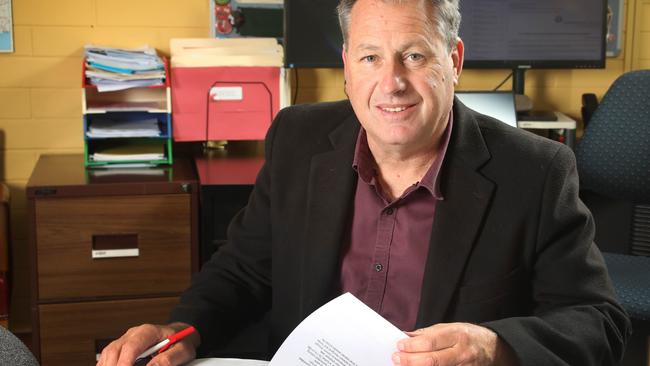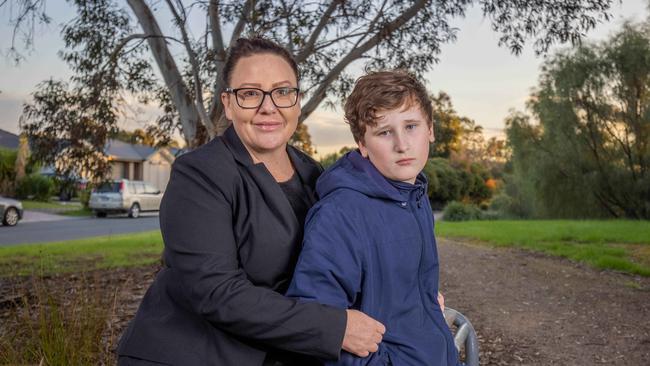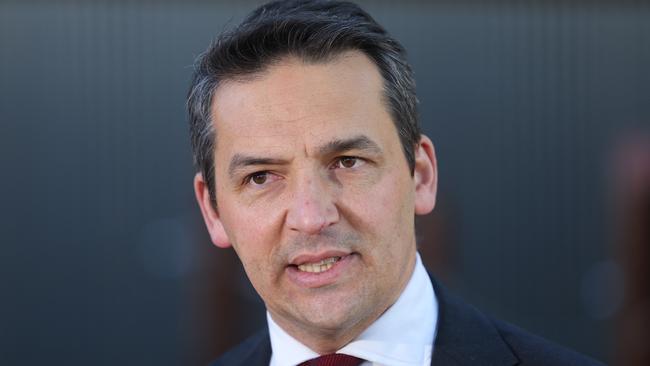Parents left in limbo as government and union negotiate before Friday’s strike
Tense negotiations between the teacher’s union and state government start today ahead of the planned strike on Friday. Here’s what parents need to know.
SA News
Don't miss out on the headlines from SA News. Followed categories will be added to My News.
Three days of tense negotiations between the education union and the government will begin on Tuesday, ahead of a planned strike.
Meetings between the Australian Education Union (AEU) SA and the government will take place in the days before a planned strike on Friday, which could affect more than 172,600 public school students across 893 preschool, primary and secondary campuses.
It is expected to result in thousands of teachers walking off the job, which will leave parents and guardians having to organise care for children unable to attend classes because of the strike.
AEU SA president Andrew Gohl will meet with Education Minister Blair Boyer and Industrial Relations Minister Kyam Maher during the week for discussions, which the union boss said he hoped would “bring the parties closer” in negotiations.

Mr Gohl said current government proposals were “woefully inadequate”.
“They (the government) want us to have a look at our claim and we’ll do that in an effort to bring the parties closer,” Mr Gohl said ahead of the meetings.
The AEU is seeking pay increases for public educators of between 5.5 and 8.6 per cent per year until 2026 and more than $1bn in extra classroom support to ease workload pressures and manage children with complex needs.
It also wants a 20 per cent drop in face-to-face teaching time

Single mother Rachel Mayne is among thousands of parents across the state who are set to be impacted by the strike.
“If the school does close it’s quite an impact,” Ms Mayne, 48, from Parafield Gardens, said.
Ms Mayne, who works in employment services, said she would have to take an unpaid day off to care for her 10-year-old son Liam if he cannot attend school on Friday.
Liam, who is in Year 5 at Gulfview Heights Primary School, has autism and “won’t be able to manage” his anxiety if his teacher is not at school, Ms Mayne said.
“It’s going to cause a very bad day for him,” she said.
Ms Mayne sympathised with teachers but said “there has to be other ways” of negotiating rather than striking.
“I think teachers have enough on their hands and I sympathise with the fact that they probably are underpaid,” she said.

Education Minister Blair Boyer said parents can expect “clearer information” of which sites will be affected by Wednesday, when he will meet with the union.
“We are not going to turn any children away,” he said.
Ahead of the negotiations, Industrial Relations Minister Kyam Maher said the strike action was “disappointing”.
“It is disappointing that the AEU called strike action before they had even responded to the government’s offer,” he said.
“We will continue to negotiate in good faith as we have all along and urge the union to do the same.”
The AEU first flagged possible strike action on August 16, and opened voting among its 12,000-plus members two days later.
The ballot closed at 5pm on Friday August 25, when Mr Gohl announced the result.
An overwhelming 80 per cent of the teachers union members who took part in the vote agreed to go ahead with the full-day strike.
A rally on the steps of Parliament House is planned for 11am on the day of the strike.





